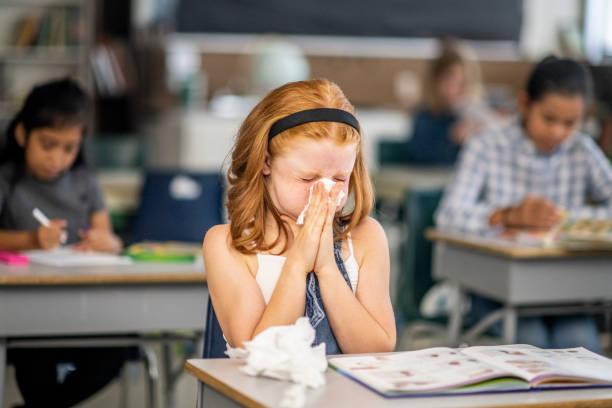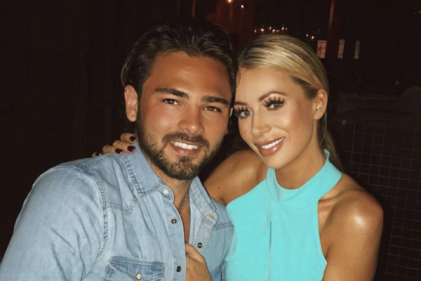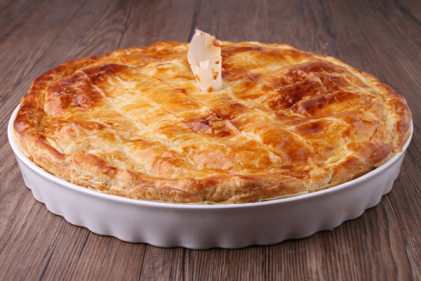Kissing loved ones this Christmas could put little ones in danger warns Irish Pharmacist, Sheena Mitchell as RSV infections in Ireland reach unprecedented levels. With the December countdown underway, the pharmacist and mum of three young children says that Mums and Dads should keep people away from their babies under 6-months. Kissing the baby, touching the baby’s face or hands, and passing the baby around family and friends is a no-no.
With a mission to empower parents so they don’t feel guilty for protecting their baby, the founder of family medical resource Wonderbaba.ie and owner of Milltown pharmacy Total Health, says the same precautions for Covid should be taken to help prevent RSV infection.

The Dublin Pharmacist, Sheena Mitchell highlights the importance of cocooning babies under 6-months during this unusual spike in RSV cases saying, “Young babies and those that were born premature, will experience difficulty maintaining the oxygen levels in their blood when they have inflammation in their airways. Parents really need to keep their babies away from other people while this virus which causes bronchiolitis is in such high circulation. The symptoms for RSV only become apparent between days three to five of infection, so children and family members could pass it on without realising.”
Now a global issue, scientists say a pandemic immunity gap is responsible for the surge in the Respiratory Syncytial Virus, a common cold-like virus that can cause breathing problems for the most vulnerable.
Dublin Pharmacist Sheena Mitchell published a chart on her Wonderbaba social media this week outlining just how scary the rise in RSV infection numbers are as they continue to rise, amid concern that Christmas could cause an even bigger surge in infections.
Commenting on the RSV numbers, Pharmacist Sheena Mitchell said: “It is quite alarming when you see the jump in the number of RSV cases in a chart like this. Most children normally come into contact with RSV by the age of 2-years. However, due to the Covid pandemic this didn’t happen because we were so careful to avoid any kind of infection. We were washing our hands regularly, sanitising and wearing masks amongst other infection control measures. Childcare facilities and schools were closed for a time and then pods were introduced to keep close contact to a minimum. Scientists are now saying that our ‘Covid Kids’ have an immunity gap, and this is what is causing the virus to infect more young children this winter than ever before.”
The community pharmacist plays a very valuable role in providing accessible free advice at a time when GP surgeries are overwhelmed. Sheena Mitchell’s own pharmacy, TotalHealth in Milltown, Dublin 6, doesn’t just offer advice over the counter, her Wonderbaba.ie online resource has lots of helpful articles for parents dealing with common childhood illnesses.
Parents worried about the signs and symptoms of RSV can access her advice in blogs written by the pharmacist on Wonderbaba.ie or listen to her recent podcast episodes which tackle the virus. Here parents can hear a valuable soundbite of what kind of cough they should watch out for, and may relate to one mum’s experience of RSV when her little boy was hospitalised.
RSV the Facts:
- RSV spreads through droplets in the air from sneezing or coughing and can be passed on from an infected person to another through kissing, touching, or shaking hands.
- Incidence of RSV are up over 1000% on the same week pre-Covid 2019.
- RSV typically circulates between November and March each year, but this year it started earlier in October.
- RSV infections typically affect children up to 4-years of age but can also affect older people over 60-years.
- A wheezy cough or wheeze in your child’s breathing can indicate bronchiolitis, a viral infection of the airways in your child’s lungs.
- The most common cause of bronchiolitis is the Respiratory Synctial Virus (RSV).
- Bronchiolitis tends to start with cold-like symptoms including a blocked or runny nose, a mild fever, and a slight cough.
- The symptoms of bronchiolitis usually peak between 3-5 days and include a persistent dry cough, runny nose, rapid breathing, wheezing, and poor feeding.
- Most children with RSV tend to recover within two or three weeks without treatment, however some may require hospital admission to get help with dehydration or breathing difficulties.
- Bronchiolitis is a virus so antibiotics will not be effective, instead it is about treating the symptoms.
This Christmas, Pharmacist Sheena Mitchell warns families to be careful when meeting up with family and friends to limit vulnerable loved ones from contracting RSV. She advises everyone, young and old to wash their hands and use hand sanitiser in the same conscientious way we did during the height of the Covid pandemic. The pharmacist and mum of three young children, also encourages that anyone visiting very young babies wear a face mask in their presence and warns against amorous ‘Kissmas’ greetings over the festive season.
“Be vigilant, don’t let people touch or kiss your young baby. RSV has a long incubation period so they may not even know they have it and could easily pass it on to your little one. What starts as typical cold symptoms could be life-threatening for your baby’s immature immune system if they get a bad dose. We already know that the children’s hospitals are treating countless babies for breathing difficulties from RSV infection this season. Always trust your instinct and if you are in any way worried about your child’s health, don’t waste any time and bring them straight to hospital,” advises Pharmacist Sheena Mitchell.
WONDERBABA PODCAST:
https://www.wonderbaba.ie/blog/podcast/wonderbaba-explains-rsv-and-bronchiolitis/
https://www.wonderbaba.ie/blog/podcast/real-lives-sinead-hingston-green-alby-rsv-and-me/
WONDERBABA BLOGS:
https://www.wonderbaba.ie/blog/rsv-rising-levels-what-does-this-mean/
https://www.wonderbaba.ie/blog/bronchiolitis-the-best-ways-to-beat-it/














